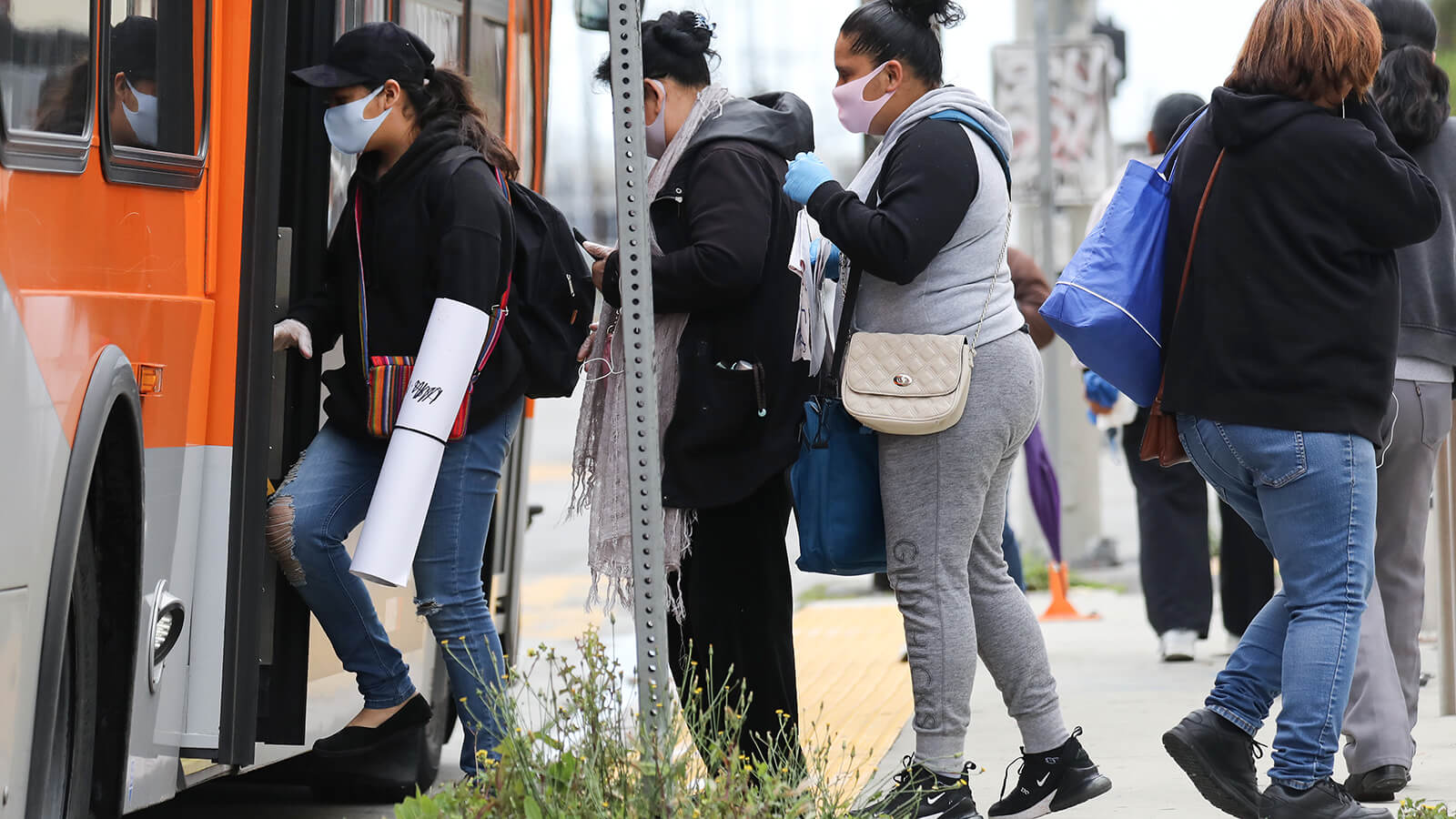At the BOC near Union Station where Franco works, he and his team are responsible for “service mitigation”; ensuring that when something happens to one of L.A.’s 3,000 buses or its operators, whether it’s a breakdown, an illness or some other problem, help is dispatched immediately and the buses are able to keep to their schedules as closely as possible.
At the end of May, Franco’s mother’s health was weighing on him. A smooth day at work would have been a reprieve from his responsibilities at home.
But a calm day was the last thing in store for Franco.
Footage of the horrific death of George Floyd in Minneapolis led to protests across the nation. In Los Angeles, the protests coalesced in the downtown area, the main artery through which L.A.’s buses run.
Suddenly, Franco had to figure out how, in real time, to re-route dozens of buses, avoiding the shifting protests. He had to ensure not only that the 40 or more lines, which transported tens of thousands of riders kept running, but that both bus operators and riders remained safe.
It fell on Franco, a member of Local 3634 (Council 36) to not only orchestrate this complex ballet of buses, but to communicate with and assuage the city’s senior-most transit managers. Franco also had to communicate with police authorities, who were reporting crucial on-the-ground information about which areas were snarled with traffic and which had grown unsafe.
According to Franco’s co-worker, Peter Velasquez, rather than cave under the pressure, Franco managed to “create order from chaos. He took control and showed what it means to be a leader.”
Franco’s performance under pressure was the most recent example why Velasquez nominated Franco for AFSCME’s Never Quit Service Award.
“The way that he proceeds with the work is above and beyond what most people would do,” said Velasquez. “It’s always certain people like Justo who get tasked with things like this. Justo stays calm, steps up and takes care of things that need to get done. For me, knowing Justo has helped me become a better person. He taught me what it means to take on a role and step up when things need to get done.”
The challenge before Franco was keeping as many as 50 bus lines out of a large swath of downtown Los Angeles.
Franco credits his 11 years’ experience as a bus operator, and almost eight years as a transit supervisor, as part of the reason he was able to safely re-route the buses without incident.
“We had to reroute hundreds of buses through the downtown area. We had five square miles we had to avoid [in the] central business district,” recalls Franco. “It was for the operators’ and passengers’ safety. You have to keep them safe.”
Franco and his team were constantly looking at maps, choosing new routes to send their buses and, just as important, deciding whether those routes would accommodate buses of up to 60 feet in length.
Franco says his team was the reason he successful tackling the challenge.
“Yes, I was the point person, but without a good team, you can’t be successful,” he says.
Luckily, the past several months have been calmer at the operations center, says Franco. Though, he notes, the recent Los Angeles Lakers’ NBA championship provided a brief, if welcome, uptick.
